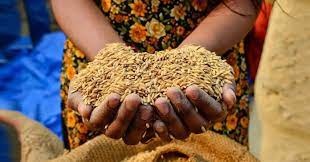ISLAMABAD: The government of Pakistan should devise a mechanism to control inflation as it has been badly affecting food security in the country for the last few years, WealthPK reports.
Inflation has a direct impact on food security. In Pakistan, food security was already facing challenges owing to subversive activities of militants, conflict in neighbouring Afghanistan and climate change, but rising inflation has worsened the situation.
“Food insecurity not only results in poor health and low productivity but also creates instability in the country and the entire region. Presently nearly 193 million people around the world face acute food insecurity,” Irshad Khan Abbasi, the head of innovation and integration at the Pakistan Poverty Alleviation Fund, told WealthPK.
He said that food security was considered one of the most important factors in developing countries like Pakistan to eradicate poverty. “According to the global hunger index, Pakistan ranks 92nd among 116 countries. We reduced poverty by 50% in 2015, from 57 to 24.3%, but it increased again to 35.7% in 2022 due to the Covid-19 pandemic and the recent devastating flash floods,” he said.
Irshad Khan said that the rise in inflation in recent years left a serious impact on food security. He noted that skyrocketing inflation deprived people of basic amenities. Extreme weather conditions, droughts and irregular rainfalls also reduced food production, he added.
“The increase in prices of fertilisers is another factor contributing to food stress. The shortage of fertilisers will lead to a reduction in yields, which will impact the supply and demand of food and resultantly affect prices of food commodities,” he said.
The cost of food in Pakistan increased by 31.20% in November 2022 as compared to the same month of the previous year.
“Agriculture is an essential component of the economy and a strong engine of growth in most developing countries. Pakistan relies heavily on agriculture for national income and job creation,” said Irshad Khan.
He said that in an agrarian country like Pakistan, food security had the power to alleviate poverty.
“To improve agricultural productivity in times of economic crisis, special attention should be paid to the food industry. Farmers should have easy access to inputs including seeds, insecticides, fertilisers and pesticides,” he said.
He said that better seads would result in higher yields and profitable returns for farmers, improving their standard of living. “Inflation is a global issue that is becoming increasingly common. According to the International Monetary Fund (IMF), some countries are dealing with it more severely than others. In comparison with developed countries, emerging economies experience far worse levels of inflation,” said Irshad Khan.
He said that inflation was one of the most important economic indicators because it allowed people to understand the general cost of living as well as the fluctuations in prices.
“A stable price environment is essential for all kinds of economic decision-making that leads to economic growth and also benefits the poor and fixed-income citizens, who are the most vulnerable segments of society. To achieve sustainable and inclusive growth, Pakistan needs a stable inflation environment for productive investments and savings,” Irshad Khan told WealthPK.





